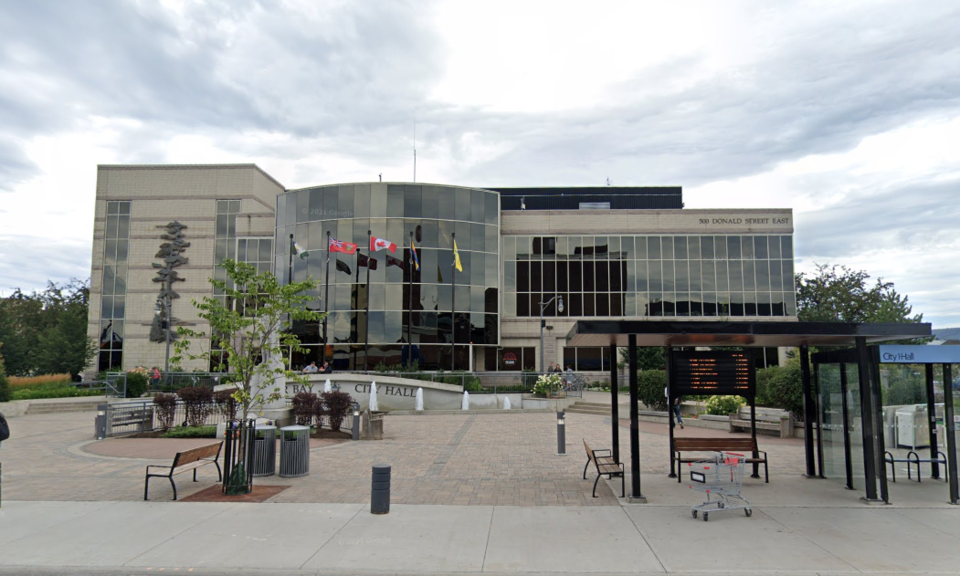THUNDER BAY – A major overhaul of Thunder Bay’s property and yard rules is set to take effect in the coming weeks.
City council voted to approve the new bylaws and repealed the previous rules on Monday following months of review, though they won’t come into force until Aug. 23, the city said.
The city unveiled draft versions of new yard maintenance and property standards bylaws in May, along with two new bylaws focused on minimum heat requirements and vacant buildings.
Together, those bylaws account for around 80 per cent of municipal enforcement work, the city estimates.
The new minimum heat bylaw is intended to strengthen enforcement of a city rule requiring landlords provide heat of at least 21 C (who can provide proof of an agreement making the tenant responsible for heat are exempt).
It also empowers the city to step in to maintain adequate heat in place of a landlord who has failed to do so. If the owner fails to pay the city back within 30 days, the cost would be added to the property’s tax bill.
The city tweaked the bylaw after a first draft was criticized as too cumbersome for tenants, dropping a requirement for tenants to produce a copy of their lease agreement to launch a complaint (that burden of proof will now be on the landlord), and simplifying rules requiring tenants to provide numerous temperature readings from two separate thermometers.
A pair of legal clinics that commonly represent tenants in disputes, referring regularly to the bylaws, welcomed some of those moves, but had also urged the city to go further.
The changes don't fully address concerns about how long it can take to resolve complaints, according to the Kinna-Aweya and Lakehead University legal clinics.
The clinics also encouraged the city to apply similar protections for tenants on other vital services, like water and power, steps they say are well within the city’s legislated authority.
In a report, licensing and enforcement manager Doug Vincent said the city would “engage with stakeholders to explore the viability of such additional requests” and potentially report back to council in the future.
City staff say the rules overhaul, along with a staffing expansion in the enforcement division, will help tackle long enforcement delays.
The changes would clarify officers' powers of entry, reduce notice requirements, and create a revised fine system starting at $300 and ranging to $10,000 for repeat offenders ($100,000 for corporations).
Residents will also be empowered to naturalize their yards under the new rules.
The new yards bylaw will explicitly exempt alternatives like native grasses and wildflowers from the 20-centimetre height limit for turf grass. A short list of invasive and problem species will be prohibited, while a definition of “weeds” will be removed.
City staff originally proposed a 50 per cent limit and a requirement for a buffer strip of turf grass along neighbouring yards, but ditched those restrictions in the face of strong public support for naturalization.
The city also modified its definition of yard “waste” to allow for trees or logs that serve as habitat in natural gardens.
The changes are intended in part to support residents in creating habitat for birds and pollinating insects, many of which have seen startling population declines in recent decades.
A call to explore allowing residents to also naturalize city-owned boulevards was not addressed in the new bylaw, but is being reviewed.
In a report, licensing and enforcement manager Doug Vincent said city staff across multiple departments are supportive of the concept, but more work needs to be done to review the idea.
A report to council on that topic is expected by May 30, 2023.
Yard standards can be enforced against landlords or tenants, city staff said.
Other changes in the new bylaws include new standards for unoccupied buildings, and a ban on storing derelict vehicles on residential lots by 2025.
Coun. Aldo Ruberto questioned the need for the three-year wait on Monday. The “sunset clause” was introduced after consultation, staff said.
He joined other councillors in praising staff for the overhaul of the bylaws.
“It’s going to help a lot of people,” he said. “I’ve had numerous complaints about yards, maintenance, et cetera the last 16 years. Sometimes bylaw had their hands [tied], but this hopefully is going to address a lot of those issues.
